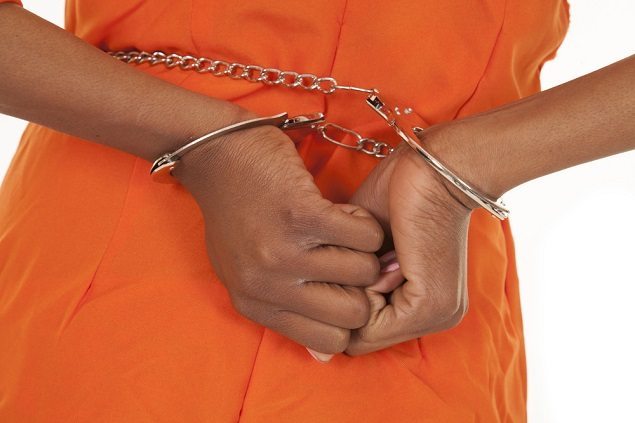Lorelie Rozzano is a guest blogger for Vertava Health. Involuntary Manslaughter: The act of unlawfully killing another human being unintentionally. Most unintentional killings are not murder but involuntary manslaughter. The absence of the element of intent is the key distinguishing factor between voluntary and involuntary manslaughter. In most states involuntary manslaughter results from an improper use of reasonable care or skill while performing a legal act, or while committing an act that is unlawful but not felonious. – The Free Dictionary by Farlex. Have you ever wished that we could lock up all the drug dealers? Wave a proverbial magic wand, and make them all, just disappear. Then our drug problems would be over. Right? Wrong, it’s not that simple. As strange as it may seem, drug addiction isn’t really about drugs. It’s about anxiety, stress, low self worth, denial, delusion, dishonesty, shame, guilt, pain, and trauma. Addiction is about unhealthy behaviors, impaired thinking, emotional immaturity and dysfunctional relationships. Even if we could lock up every drug dealer – which by the way might be a family member – the underlying problem, or driver, would still exist. So what can we do? It’s hard to hold the addicted person responsible when their brain chemistry is altered. We can sentence them to prison, and they might get clean while there, but once out, we are still dealing with the underlying issues. And more often than not – they’ll go back to seeking relief in the form of mood altering substances. Then who can we hold responsible? Why not the enabler? It might sound crazy, but an addict needs help to stay sick. No parent or family member sets out to intentionally help their loved one, kill themselves. At least not at first, addiction is a progressive and terminal, disease. As the addict progresses, he/she will need financial help and they’ll call upon their family and friends, for it. If I’m the family member who’s being called upon to help, it might even feel good. But addiction is all consuming, and soon, helping, will turn into a full time job. The addict crosses an invisible line into addiction, and the help provided by the family member, turns deadly. If your loved one was in psychosis and wanted a gun, would you give it to them with the warning, don’t shoot yourself? Of course not! Yet isn’t that what you’re doing, when you enable addiction? Trade in the loaded gun, for a loaded syringe. The truth is, it’s easier to enable, than not. We don’t want our family member to be mad, or upset with us. God forbid, we don’t want to feel upset. So we tell our self, just this one time. We make that choice sober. We heed warnings from friends and family members and we collude with whatever the addicted person, wants. We fix their problems. We blame other people for the way they act. We make excuses for them. We lend them money. We pay their drug debts. We pay their child support and utility bills. We pay off the lawyer. Some of us even buy their drugs. So why would an addict ever choose to get well? Truthfully, they won’t. Everything they need is being provided for them. This gives them full range to focus solely on one thing only, more. After working with families in rehab, they come clean. Most know that what they’re doing isn’t helping, but they do it, anyway. They tune out the healthy voices, because the sick person is louder and needs them. Helping is the enablers, cocaine. If we seek legal consequences against the addict, why aren’t we charging the addict’s helper? After all, they’re colluding with the addict by participating in legal activities whether they want to think so, or not. You can’t lock up or treat the addict, and then send them back home to their enabler and expect them to stay sober. It’d be like laying a syringe next to a baggie of heroin and then expecting the addict not to shoot it up. Addiction and enabling go hand-in-hand. One can’t exist, without the other. What if we were to charge enablers with Involuntary Manslaughter? When the addict enters treatment the enabler will be identified. (The family knows who the enabler is) This person is given a list of suggestions to follow. If they refuse to follow these suggestions, we should never send the recovering addict near them. If they continue to enable and refuse to look at their role in addiction and behave in a way that is deadly to the addict, shouldn’t they be held accountable? The addict will be. For the price of relapse, can be death. It’s a drastic approach, but with death by drug overdose, happening every eleven to nineteen minutes across North America, we need something drastic to happen. If you want to make the drug dealer, the bad guy, think again. For in many cases the drug dealers aren’t being paid by the addict. Their money is coming from the addict’s family. Don’t kid yourself. If you have an addict in the family, you don’t just have one sick person. There are at least two and many times, it’s the whole family. Enabling is every bit as dangerous and tragic, as addiction. If you’ve identified an enabler in your family, encourage them to seek help. The addict’s life just might depend on it. If you or someone you know needs help, please call this confidential support line for assistance. 844-470-0410. All the best, Lorelie Rozzano.
Should enablers be charged with Involuntary Manslaughter?


